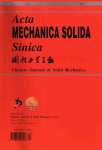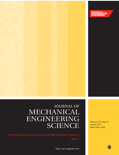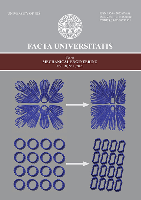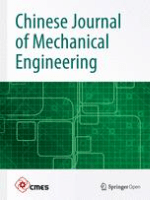
Journal of Vibroengineering
Scope & Guideline
Bridging disciplines through the science of vibration.
Introduction
Aims and Scopes
- Vibration Analysis and Modeling:
Research focusing on the mathematical and computational modeling of vibration phenomena in various systems, including mechanical, civil, and aerospace engineering. - Fault Diagnosis and Monitoring:
Studies aimed at developing techniques for the early detection and diagnosis of faults in machinery and structures based on vibration data. - Control Systems and Optimization:
Innovations in control strategies aimed at mitigating vibrations in mechanical systems, enhancing performance, and improving safety. - Material and Structural Dynamics:
Investigations into the dynamic behavior of materials and structures under various loading conditions, including seismic and operational loads. - Applications in Engineering and Technology:
Research that applies vibration engineering principles to practical applications in industries such as automotive, aerospace, civil, and manufacturing.
Trending and Emerging
- Machine Learning and AI in Vibration Analysis:
There is a growing trend in employing machine learning and artificial intelligence techniques for the analysis and diagnosis of vibration data, enhancing predictive maintenance and fault detection capabilities. - Smart Materials and Structures:
Research on the use of smart materials and adaptive structures that respond dynamically to environmental changes and operational conditions is gaining traction. - Hybrid and Multiscale Approaches:
The integration of hybrid modeling techniques that combine multiple scales and methods (e.g., numerical simulations with experimental validation) is becoming increasingly popular in vibration research. - Sustainability and Energy Efficiency:
Emerging studies focus on the role of vibration engineering in developing sustainable technologies and improving energy efficiency in mechanical systems. - Real-time Monitoring and IoT Applications:
The application of Internet of Things (IoT) technologies for real-time vibration monitoring and data acquisition is on the rise, enabling more responsive and adaptive engineering solutions.
Declining or Waning
- Traditional Mechanical Systems:
There has been a noticeable reduction in studies focusing solely on traditional mechanical systems and their vibration characteristics, as newer methodologies and technologies emerge. - Static Structural Analysis:
Research that primarily concentrates on static analysis without considering dynamic effects has become less frequent, indicating a shift towards dynamic and time-dependent analyses. - Basic Experimental Methods:
The reliance on basic experimental approaches for vibration analysis is waning, with a preference for more sophisticated and integrated methodologies that incorporate advanced data analytics and machine learning.
Similar Journals

Coupled Systems Mechanics
Exploring Complex Interactions in Engineering DisciplinesCoupled Systems Mechanics is a pioneering journal in the fields of Civil and Structural Engineering and Mechanics of Materials, published by TECHNO-PRESS. With an ISSN of 2234-2184 and an E-ISSN of 2234-2192, this journal actively contributes to the academic discourse surrounding coupled system mechanics, addressing complex interactions within engineering disciplines. Hailing from South Korea, the journal has been committed to disseminating high-quality research since its inception, converging years from 2017 to 2024. It holds a respectable Q3 ranking in both Civil and Structural Engineering and Mechanics of Materials, indicating its relevance and impact within these fields. Researchers, professionals, and students can expect cutting-edge studies and innovative methodologies, as the journal consistently aims to enhance understanding and application of coupled systems in engineering. Although it operates under a subscription model, it remains an essential resource for those looking to stay at the forefront of advancements in engineering sciences.

Journal of Theoretical and Applied Mechanics
Driving Excellence in Mechanical Engineering and MathematicsJournal of Theoretical and Applied Mechanics, published by the Polish Society of Theoretical and Applied Mechanics, stands as a leading platform for disseminating cutting-edge research in the realms of theoretical and applied mechanics. With its ISSN 1429-2955 and E-ISSN 1429-2955, this Open Access journal has been fostering academic dialogue since 2006, making knowledge readily accessible to researchers and practitioners alike. Based in Warsaw, Poland, the journal encompasses a wide breadth of topics within mechanics, appealing to a diverse readership including researchers, professionals, and students. The journal's current Scopus ranking places it within the 30th percentile of the field, emphasizing its relevance and contribution to the discipline. As it converges from 2007 to 2024, the Journal of Theoretical and Applied Mechanics is pivotal for those seeking to advance understanding and innovation in mechanical engineering and mathematics, making it an essential resource for anyone involved in these critical areas of study.

Magazine of Civil Engineering
Advancing Civil Engineering Knowledge for Tomorrow's InfrastructureMagazine of Civil Engineering, published by ST-PETERSBURG STATE POLYTECHNICAL UNIVERSITY, is a prominent open access journal dedicated to the field of civil and structural engineering. With an ISSN of 2712-8172 and E-ISSN 2071-0305, it serves as a vital platform for disseminating high-quality research, innovative methodologies, and current trends in building and construction. Since its inception in 2010, the journal has embraced open access, ensuring broad visibility and accessibility for its contributions to the academic community. The magazine holds a respectable position in the academic hierarchy, ranked in the Q3 quartile for both Building and Construction and Civil and Structural Engineering categories as of 2023. It is indexed in Scopus, amplifying its societal impact and reach with a rank of #114/223 in Building and Construction and #224/379 in Civil and Structural Engineering. Researchers, professionals, and students alike are encouraged to engage with the cutting-edge studies presented in the magazine, contributing to the advancement of knowledge and practice within the civil engineering domain.

Journal of Structural Integrity and Maintenance
Exploring Cutting-edge Research in Structural IntegrityThe Journal of Structural Integrity and Maintenance, published by Taylor & Francis Ltd, serves as a prestigious platform dedicated to the advancement of knowledge in the fields of structural integrity, civil engineering, and materials science. With an ISSN of 2470-5314 and an E-ISSN of 2470-5322, this journal is uniquely positioned to address the critical challenges faced by researchers and professionals in building and construction, mechanical engineering, and related domains. Since its inception in 2016, this journal has been consistently recognized for its quality, currently holding a Q2 rank across several disciplines, including Building and Construction and Civil and Structural Engineering in 2023. The journal aims to publish high-quality research that contributes to the understanding and maintenance of structural integrity, fostering innovations that promote safety, efficiency, and sustainability in engineering practices. Researchers and students alike are encouraged to engage with this rich repository of knowledge, which plays a vital role in shaping future advancements in structural engineering and materials science.

ACTA MECHANICA SOLIDA SINICA
Pioneering Insights in Computational and Mechanical EngineeringACTA MECHANICA SOLIDA SINICA is a prestigious journal published by Springer, dedicated to advancing research in the fields of Computational Mechanics, Mechanical Engineering, and Mechanics of Materials. Since its inception in 1981, the journal has established a significant presence in the academic community, holding a commendable Q2 ranking across its categories as of 2023. Furthermore, it is recognized for its impactful contributions, with Scopus rankings placing it in the top quartiles, fostering essential discourse among professionals and researchers in the engineering domain. While it operates under a traditional access model, ACTA MECHANICA SOLIDA SINICA continues to provide valuable insights and developments, making it an essential resource for those seeking to deepen their understanding of solid mechanics and related disciplines. The journal remains an influential platform for innovative theoretical and experimental studies, reinforcing its status in the global academic landscape.

PROCEEDINGS OF THE INSTITUTION OF MECHANICAL ENGINEERS PART C-JOURNAL OF MECHANICAL ENGINEERING SCIENCE
Fostering collaboration and innovation in engineering disciplines.PROCEEDINGS OF THE INSTITUTION OF MECHANICAL ENGINEERS PART C - JOURNAL OF MECHANICAL ENGINEERING SCIENCE, published by SAGE Publications Ltd, stands as a pivotal resource in the field of mechanical engineering, encompassing a wide array of topics from advanced materials to fluid dynamics and system design. With an impact factor reflective of its esteemed reputation, as indicated by its Q2 ranking in the Mechanical Engineering category, this journal serves as a vital forum for researchers, practitioners, and students alike. The journal boasts a rich history, converging research from 1983 to 2024, showcasing innovations and advancements that shape the mechanical engineering landscape. Although it is not an open-access publication, the insights and studies published herein provide invaluable contributions to the engineering community, fostering knowledge exchange and collaborative advancements. Researchers seeking a platform for their pioneering work will find Part C an ideal venue to disseminate their findings and engage with peers in this dynamic field.

Forces in Mechanics
Bridging Theory and Application in MechanicsForces in Mechanics is a premier open access journal published by ELSEVIER that has carved out a significant niche in the realms of Mechanical Engineering and Mechanics of Materials. Established in 2020 and based in the Netherlands, this journal aims to disseminate high-quality research that explores the fundamental principles and applications of forces within mechanical systems. It operates under the ISSN 2666-3597, showcasing a dedication to transparent and accessible research for scholars around the globe. With a 2023 impact factor ranking placing it in the Q2 quartile for both Mechanical Engineering and Mechanics of Materials, the journal is recognized for its contributions to the field, evidenced by its Scopus ranking—285th in Mechanical Engineering and 184th in Mechanics of Materials, placing it in the 57th and 53rd percentiles, respectively. The journal publishes original research articles, reviews, and technical notes, catering to a diverse audience including researchers, practitioners, and students who are keen to advance their knowledge on the dynamics of forces in mechanical contexts. As it converges from 2021 to 2024, Forces in Mechanics remains committed to providing a platform for innovative research and critical discourse, ensuring that all published work is freely available to the global community.

International Journal of Acoustics and Vibration
Connecting Scholars and Practitioners in Sound ScienceInternational Journal of Acoustics and Vibration is a leading peer-reviewed journal published by the International Institute of Acoustics & Vibration, focusing on the diverse fields of acoustics and vibration. With an ISSN of 1027-5851, this journal has been a pivotal resource since its establishment in 2000, examining both fundamental and applied aspects of sound and vibration phenomena that are critical for advancements in engineering and related sciences. Although it does not offer open-access options, it adheres to rigorous standards of academic excellence, as evidenced by its Q3 category rankings in Acoustics and Ultrasonics and Mechanical Engineering, according to the 2023 assessments. The journal's scope encompasses innovative research, theoretical studies, and practical applications, making it essential reading for researchers, professionals, and students aiming to stay updated with the latest developments in these disciplines. With the growing relevance of acoustics and vibration in numerous industries, the International Journal of Acoustics and Vibration serves as a vital platform for disseminating knowledge and fostering collaboration among scholars and practitioners alike.

Facta Universitatis-Series Mechanical Engineering
Driving Collaboration in Engineering DisciplinesFacta Universitatis-Series Mechanical Engineering is a premier open-access journal published by UNIV NIS, dedicated to advancing knowledge in the fields of mechanical engineering, civil and structural engineering, industrial and manufacturing engineering, mechanics of materials, and polymers and plastics. Since its inception in 1997, this journal has been at the forefront of disseminating high-quality research, boasting an impressive standing in the academic community evidenced by its Q1 rankings in multiple engineering categories for 2023. With its Scopus ranks placing it among the top percentile—97th in Civil and Structural Engineering, 96th in Mechanical Engineering, 95th in Mechanics of Materials, 94th in Industrial and Manufacturing Engineering, and 93rd in Polymers and Plastics—this journal serves as a vital resource for researchers, professionals, and students seeking to engage with the latest developments and innovations in engineering. The journal is committed to supporting the open-access movement, ensuring that cutting-edge research is freely accessible to the global academic community, thus facilitating collaboration and advancement across disciplines.

Chinese Journal of Mechanical Engineering
Transforming Challenges into Engineering SolutionsChinese Journal of Mechanical Engineering, published by SPRINGER, is a premier open-access platform dedicated to advancing the field of mechanical engineering. With a publication history dating back to 1990 and earning a distinguished Q1 ranking in both Industrial and Manufacturing Engineering and Mechanical Engineering as of 2023, this journal is essential for researchers and professionals eager to disseminate and access high-quality research. Featuring a robust impact factor and a Scopus ranking that places it in the top 18% of mechanical engineering journals, it serves as a significant resource for innovative findings and practical applications in engineering. Benefiting from its open-access status since 2018, the journal ensures wide accessibility to its content, fostering collaboration and knowledge sharing within the global mechanical engineering community. Researchers, students, and industry professionals will find a wealth of insightful articles that address contemporary challenges and explore future advancements within the discipline.